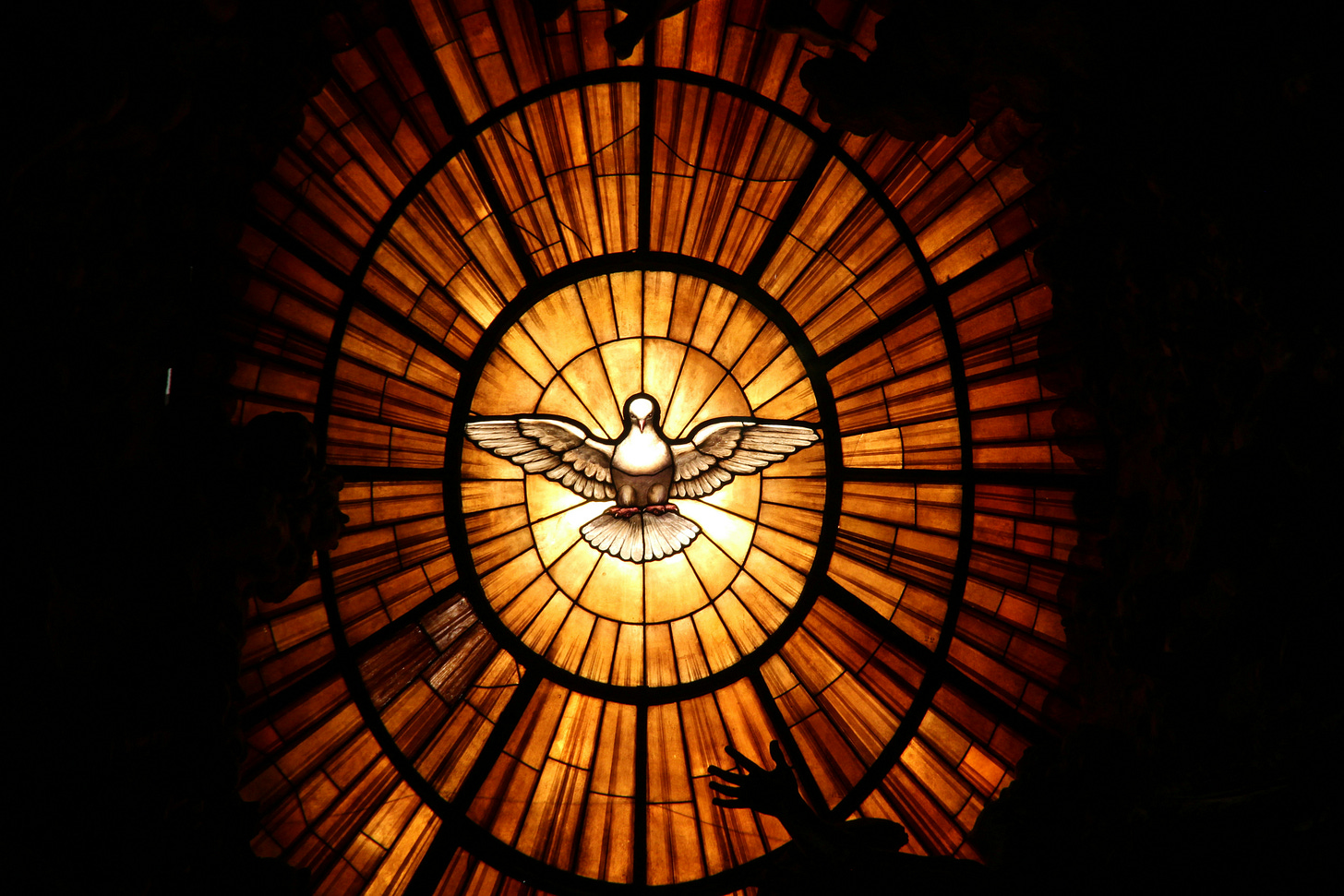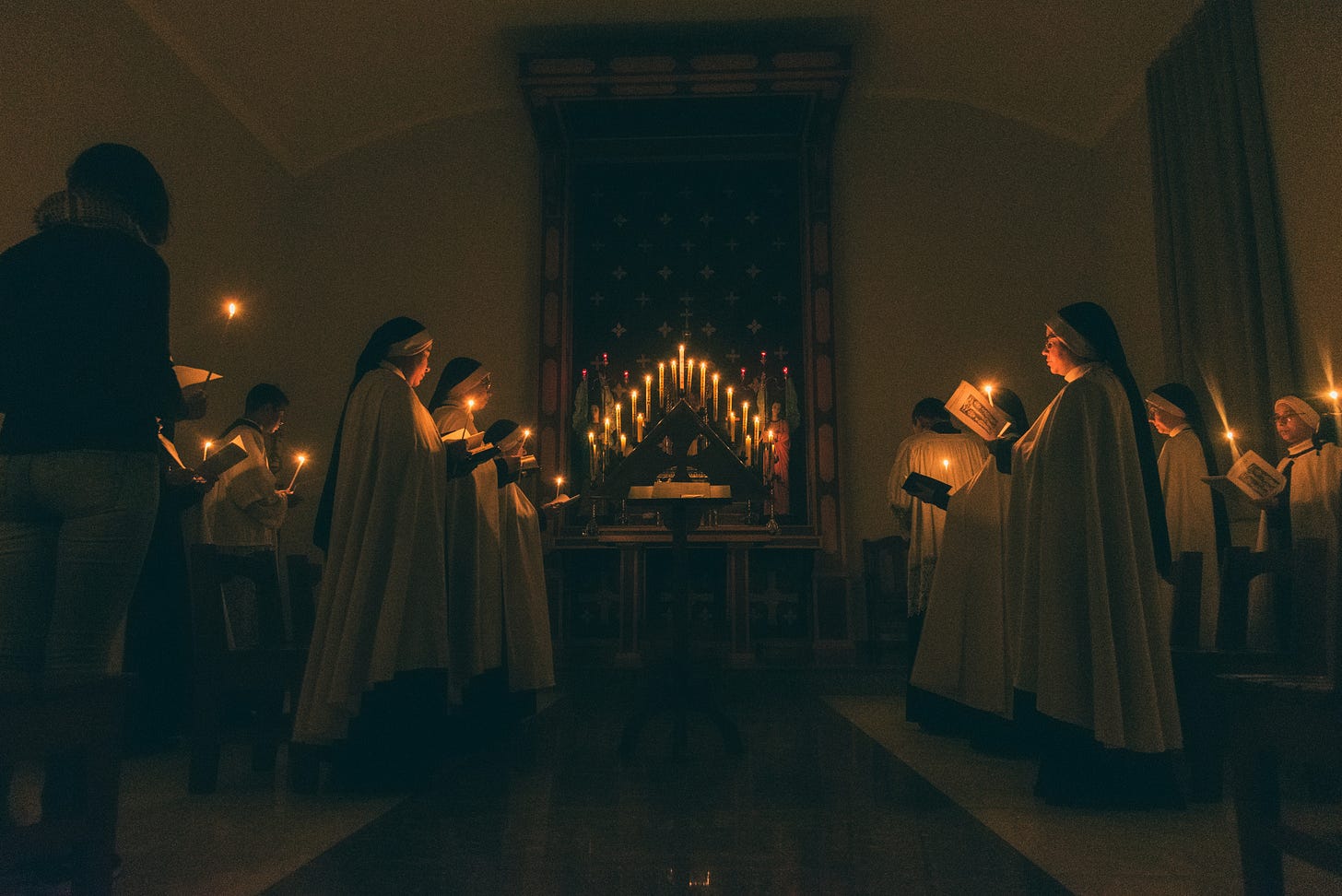The Faith of Jennifer Worth
"Now and then in life, love catches you unawares[.]" - Jennifer Worth, The Midwife
I’m partial to authors of the melancholy type. Dostoevsky is an obvious example, as is Agatha Christie. J.K. Rowling, who was my singular obsession as a child, is another - she struggled with depression for years. Alf Wight (pseudonym James Herriot of All Creatures Great and Small Fame) is still another - though his books are lighthearted, they do still touch on dark topics like suicide, and Wight himself had an emotional breakdown that required electroshock treatment.1
A lesser-known author who answers this description is Jennifer Worth. Worth may not be a household name, but the Netflix series based on her works, Call the Midwife, is extremely popular. The series is wonderful and one of my favorites ever (up until Season 10, when the show jumps the shark). Worth’s books are grittier than the show, though, even the unsparing early seasons.
Worth changed my life. I first read her books at twenty-three, which is how old Worth was when she first started as a midwife in the impoverished East End of London in 1958. I was then in my first year of law school and about to marry my husband. I was happy but I was also confused, living in a big city away from family and almost all of my close friends, on the cusp of a brand-new chapter.
I had converted to Catholicism four years prior, but I was still not living a fully Christian life. In fact, I barely attended Mass. I had accepted by then that Christianity answered the problems of life better than any other philosophy. I was ready to make that intellectual leap, but not the more difficult one of changing my day-to-day behavior. Worth’s writing finally convinced me to embrace Christ as much as I could.
Worth was born in Clacton, England on 25 September 1935. She endured an unhappy childhood after her mother discovered her father having an affair and suffered a stroke from the shock. Her parents divorced and both remarried, the father to his mistress, who was a cruel and vindictive woman who hated his daughters. Worse, her mother married an unpredictable and violent man. Worth and her younger sister were effectively homeless for a few years as a result of this domestic turmoil. 2 At sixteen, Worth left school to take on a full-time job. During this time, she had a sexual relationship with an older, married man who she considered a mentor and father figure.3 Worth never viewed the relationship as predatory (though I believe it was), perhaps because this man cared for her and her younger sister when their parents failed to do so, including finding a school where her younger sister could live as an alternative to homelessness. Nevertheless, Worth understood the relationship was wrong and bound to go nowhere. Her desire to escape the relationship led her to work odd jobs as a waitress and then enroll in nursing school. She moved to the East End, the poorest part of postwar London, to practice as a nurse and midwife in 1958.4
Worth was surprised to find upon her arrival that her lodgings were a convent of Anglican religious sisters who were also practicing nurse-midwives. This was a charming mix-up of the kind that could not occur today. Worth said of the misunderstanding:
…I would have run a mile. I was not that sort of girl. Convents were for Holy Marys, dreary and plain. Not for me. I had thought that Nonnatus House was a small, privately run hospital, of which there were many hundreds in the country at that time.5
Luckily for all of us, Worth decided to stay once she arrived at the convent. She continued her midwifery training and began district practice as a nurse, delivering babies and caring for the elderly.
Worth saw many beautiful and terrible happenings during her time in the East End. She witnessed the evils of generational poverty, including young girls forced into prostitution, abusive husbands, and families with ten or more children forced to live in two squalid rooms. She knew sweet and otherwise healthy young women who died during pregnancy or birth. She also cared for elderly patients who had lost their entire families and homes during World War II.
Worth witnessed miracles as well. There was a woman with rickets who had lost several children to obstructed childbirth whose first husband perished in the war, only to remarry and have a healthy baby via c-section in her forties. She watched a tiny premature baby thrive after doctors pronounced him doomed. She even cared for, and dined with, a happy family of twenty-five children born to the same parents! Perhaps most amazing of all, she watched the Sisters from the convent and minister to the poor of London without pity or judgment.
Worth recalled a filthy homeless woman called Mrs. Jenkins, who urinated in public and tried to touch babies in their prams. Worth remembered her revulsion upon seeing Mrs. Jenkins lurking outside of a maternal health clinic one day. (Worth would later reveal the genesis of Mrs. Jenkins’ obsession with babies. About forty years prior, Mrs. Jenkins had been forced to enter the workhouse after her husband died and a factory accident left her unable to work. Her five children entered with her, and all five died of disease due to the horrible conditions in the workhouse).6 Worth’s supervisor, Sister Julienne, had a different reaction. Worth remembered:
“She went straight up to the woman, took both hands in her own and, with her all-embracing smile, said, “Hello Mrs. Jenkins, how nice to see you.”7
Rarely has a sentence struck me so much as this one. Think about what is happening here. Sister Julienne - a professed religious sister and a trained nurse and midwife, a pillar of her community, encounters a homeless woman who is covered in grime and toilets herself in public. She smelled awful and hadn’t bathed in years. Most people would have shrunk away, especially since nobody in the community knew about her tragic history then. But Sister Julienne embraces this woman and calls her by name. If reading about such compassion is powerful, I can’t imagine how affecting it must have been to witness it. It’s no wonder Worth found God during her time in the East End.
The other Sisters in the convent were amazing, too. Sister Evangelina had parachuted behind enemy lines in World War I to care for wounded soldiers. Sister Evangelina knew the parachutes had a failure rate of 50% and jumped anyway. Sister Monica Joan was ancient, likely in her eighties or nineties by the time she met Worth. She was raised in an aristocratic family and gave up everything, including every single relationship she had, to become a religious sister (her outraged family cut her off forever). Worth reflected in her memoir that:
I had come by a convent by mistake, an irreligious girl. I would not have described myself as a committed atheist for whom all spirituality was nonsense, but as an agnostic…I had never met nuns before, and regarded this at first as a bit of a joke; later, with astonishment bordering on incredulity. Finally this was replaced by respect, and then a deep love.8
Worth spent a good deal of time talking to Sister Monica Joan, who was irritable and eccentric by the time Worth met her. Worth loved Sister Monica Joan deeply and spoke with her at length before Sister Monica Joan died. Worth asked the older woman about her vocation:
I asked her how she heard her calling, and came to be professed. She quoted lines from The Hound of Heaven by Francis Thompson:
I fled Him, down the nights and down the days;
I fled Him, down the arches of the years;
I fled Him, down the labyrinthine ways
Of my own mind; and in the mist of tears
I hid from Him
I asked her what she meant by “I fled Him”, and she became cross.
Questions, questions - you wear me out with your questions, child. Find out for yourself - we all have to in the end. No one can give you faith. It is a gift from God alone."9
This conversation convinced Worth to read the Gospels.
Jennifer Worth was highly interested in the sad inevitabilities in life. She was especially interested in cultural attitudes about death. After a few years as a midwife, she chose to work in the then-incipient hospice movement.
Worth wrote of her experiences in the book In the Midst of Life, which is not as well-known as her Call the Midwife trilogy. I recommend it - Worth has a uniquely practical way of speaking about death and spirituality. She wrote of death that:
It is well nigh impossible to talk to anyone about death, I find. Most people seem deeply embarrassed. It is like when I was a girl and nobody could talk about sex. We all did it, but nobody talked about it! We have now grown out of that silly taboo, and we must grow out of our inhibitions surrounding death. They have arisen largely because so few people see death any more, even though it is quite obviously in our midst. A cultural change must come, a new atmosphere of freedom, which will only happen if we open our closed minds.10
This attitude explains why Worth did not much fear dying. Her daughter later recounted something Worth told her shortly before Worth died of cancer:
“Darling, I don’t want you crying for me, I don’t want you to grieve for me. Death is just as much a part of life as birth. I have no fear of death and there is no need for you to fear death either.”11
Worth observed in her first memoir that “[i]f God really does exist, and is not just a myth, it must have consequence for the whole of life.”12
I was struck when I read this by how right she was. Like Worth, I was not raised in a devout household, and my initial attitude towards religion was one of derision and confusion. Also like Worth, I was surprised by an overwhelming encounter with Christ’s love - one I experienced despite my resistance. I understood when I read Worth’s work that I had to commit my life to God.
Thus began a slow and imperfect process that is still unfolding.
See Jim Wight, The Real James Herriot: A Memoir of my Father, Ballantine Books (2000).
Christine Lee, The Midwife’s Sister, PAN Books (2015), “The Dressmaker, Her Daughter, and Betrayal”.
See id.
See Jennifer Worth, Letters to the Midwife, Phoenix Books (2015), “Introduction”.
Jennifer Worth, The Midwife, Penguin Group (2002), “Nonnatus House.”
This remarkable but tragic story was covered in the 2012 Call the Midwife Christmas Special. For further reading about this story and the Workhouse system in 1900s London, read Worth’s second Memoir, Shadows of the Workhouse.
See The Midwife, “Mrs. Jenkins.”
Id., “The Beginning.”
Id.
Jennifer Worth, In the Midst of Life, Phoenix Books (2011).
Letters to the Midwife, “Introduction.”
The Midwife, “A Christmas Baby.”









I found this article entirely by chance through your Wendell Berry article (though I don’t fully believe in chance and assume you don’t either, even with the algorithm at play) and am crying in the airport! I’ve been watching CTM for years but did not know all this depth. I am going to order her books right now…thank you so much. I absolutely adore your writing!
That was a lovely reflection- thank you.